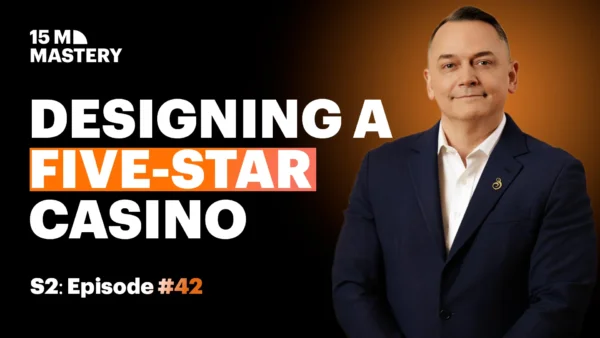Inside the Art of Hosting: How VIP Experiences Are Built to Last
From personalised loyalty frameworks to discreet care protocols, Kevin shares how true hospitality is rooted in human understanding, not just incentives.
What Defines a True VIP?
It’s not always about the watch or the wallet. “We try never to judge a book by its cover,” Kevin says. “Plenty of our top guests prefer to dress casually. The real sign is when they start treating the venue like their personal club.”
That could mean:
- Requesting a preferred table, croupier, or waiter
- Expecting familiar service without explanation
- Showing comfort, trust, and familiarity with staff and routines
The best programs, Kevin says, are backed by data, but start with respect. “Anyone who enters the building is treated as a VIP from the beginning.”
Moving Beyond Fixed Tiers
So how do you shift from rigid status levels to truly personalised VIP journeys?
Kevin’s approach: build a flexible framework. “You still keep standard tiers to track progress,” he explains, “but layer in player preferences, detailed host notes, and behavioural insights, especially what they don’t like. Then tailor the experience.”
At his previous role in a high-end Mayfair club, Kevin and his team ran over 500 bespoke loyalty programs, one for each top client. The goal? “Apply the same reinvestment budget in 500 different ways.”
Reward Strategy Starts With Margins
Deciding how much to reinvest in a player depends on market conditions, tax rates, credit rules, local laws, but also on relationship dynamics.
Across global destinations like Macau, Vegas, and Monaco, the typical reinvestment rate is around 30–50% of GGR. But for Kevin, that’s just a baseline.
“I’m not looking to make a quick buck,” he says. “I want a 30-year friendship. So I might invest more upfront if I see the relationship has long-term potential.”
Importantly, spend is measured across the whole experience, not just gaming. Tips, restaurant usage, and behaviour all factor into the model.
Cashbacks Don’t Create Loyalty
Top-tier guests know what they want, and it’s not always cash. For Kevin, the non-monetary touches are where the relationship truly grows. That includes:
- Casual, personal check-ins (daily for some, six-monthly for others)
- Thoughtful, proactive trip planning
- Invitations to private events
- Remembering life details: family, pets, birthdays
“It’s not transactional,” Kevin says. “It’s about staying warm without pressure. That’s what turns guests into lifelong clients.”
Safeguarding Without Judgement
Protecting VIPs from gambling harm isn’t about limits, it’s about care.
Kevin highlights the UK as a leader in consumer protection, but cautions against overzealous interventions. “A billionaire spending $1m might be no different to someone else spending €500 at a bowling alley,” he says. “It’s all relative to wealth band.”
The key is regular, human interaction. Coffee chats. Emotional check-ins. Sense-checking whether behaviour aligns with the player’s intent.
Other safeguards include:
- Voluntary limits and opt-outs
- Internal affordability markers
- Framing interventions with care and discretion, never control or judgement
“The goal is simple,” Kevin says. “Let them enjoy themselves safely, and never turn support into a source of shame.”

